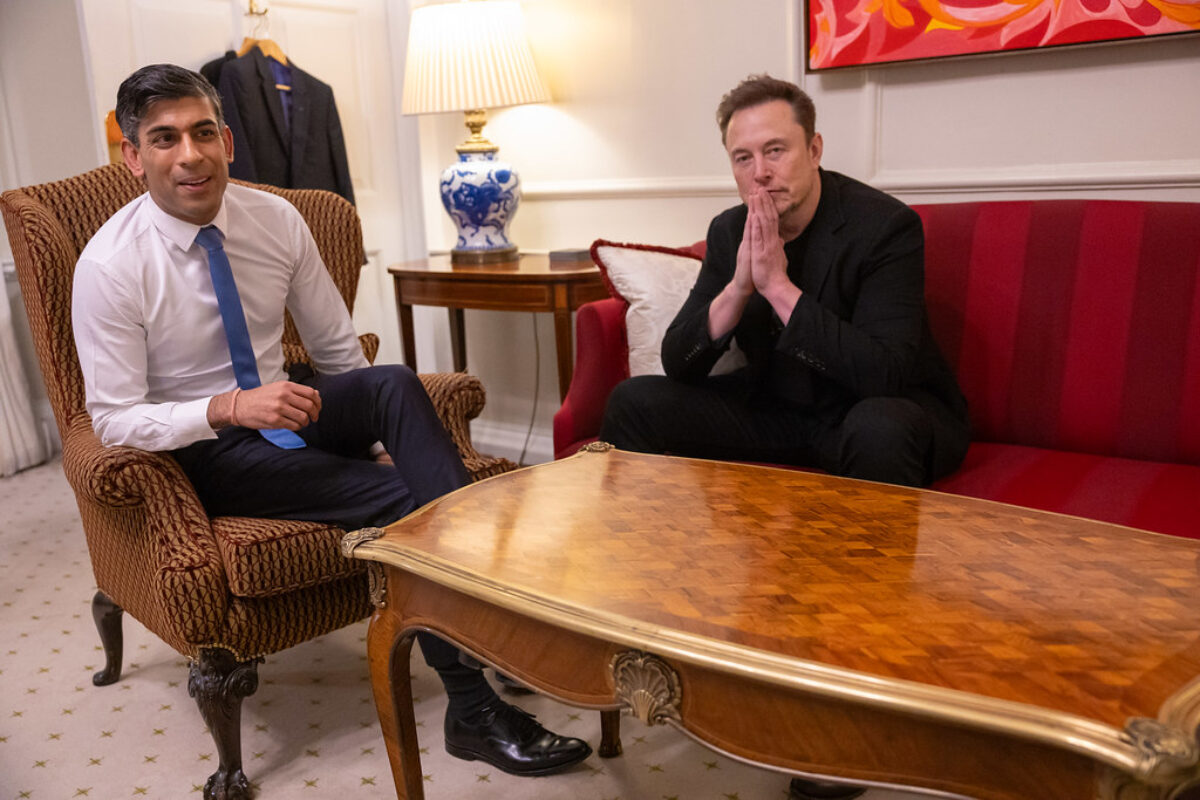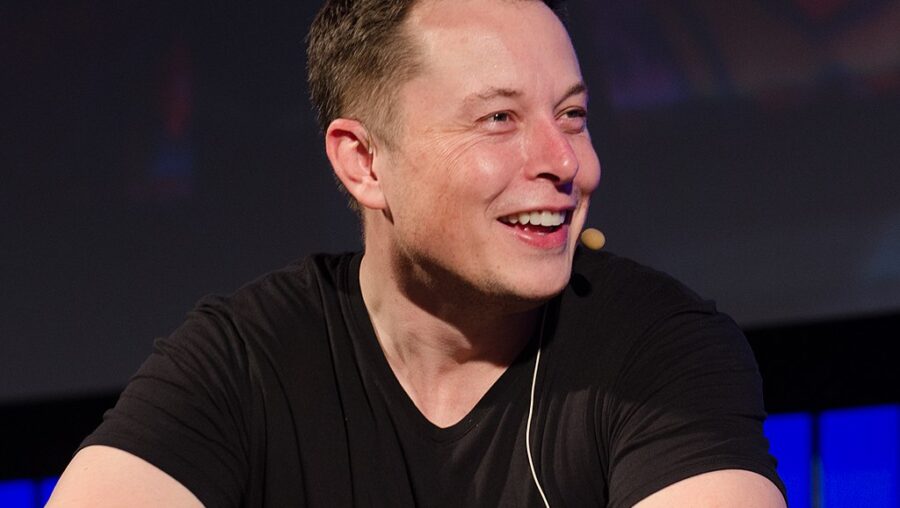It has been four years since the UK formally left the European Union. Since Brexit, Britain has been through three prime ministers and countless government crises. Nonetheless, despite the chaos of Westminster, it is already becoming clear how differently regulators in the UK and EU view the technology industry. The UK is a mixed bag, with some encouraging signs emerging for fans of freedom and innovation. The EU, meanwhile, is pursuing a path of aggressive antitrust regulation on various fronts.
AI ‘Bletchley Declaration’
Nowhere is this trend clearer than in artificial intelligence, perhaps the most inviting area of innovation in tech for a regulator to get their teeth into. Rishi Sunak, Britain’s prime minister, is tech-savvy and would not look out of place in Silicon Valley. He is even found holidaying regularly in California. This worldview filters through into the British government’s approach to AI.
Sunak hosted the world’s first AI Safety Summit in November 2023. Representatives from all over the world – including from the US, EU, and France – signed a document he created called the “Bletchley Declaration” on behalf of their governments.
In describing the Bletchley Declaration, the British government strikes a tone of moderation. “We recognise that countries should consider the importance of a pro-innovation and proportionate governance and regulatory approach that maximises the benefits and takes into account the risks associated with AI,” says the official statement.
In other words, Britain has no intention of allowing AI to run wild in an unregulated marketplace, but it also does not see innovation as a threat. It recognises that failing to harness the opportunities of AI would mean letting down current and future generations who might benefit from it. The Bletchley Declaration represents a thoughtful approach to regulating AI which promises to monitor innovations closely for signs of threats to safety but avoids placing government at the centre of the narrative and being prescriptive about what AI should or should not do.
Rishi Sunak, Elon Musk, and Britain’s Future
The British position, therefore, strikes a very different tone to activist regulators elsewhere in the world who appear to view any and all new technological breakthroughs as an opportunity to flex their muscles. In the EU, for example, or in Biden’s USA, regulators leap at the opportunity to boast about “holding tech companies to account”, which generally means making economic growth and innovation more difficult.
Britain is on a different path which could, if it stays true to its current direction, mark it out as a future hub of technological and economic activity. Sunak even took the opportunity during the summit to interview Elon Musk. “We are seeing the most disruptive force in history here,” said Musk to Sunak in their discussion about AI. “”There will come a point where no job is needed – you can have a job if you want one for personal satisfaction, but AI will do everything.”
From SpaceX to Tesla to Twitter, Musk has become a harbinger of the power of technological innovation and the free market. Although he is often controversial, embracing him in this way by having a smiling prime minister speak to him on stage was surely intended to send a signal to the world that Britain is ready to do business with the tech industry.
Brussels does things differently
This moderate British approach to AI stands in contrast with the EU’s strategy. Brussels boasts enthusiastically that its AI Act is the world’s first comprehensive regulation on artificial intelligence, focussed on ‘protecting’ citizens from AI and forming part of the EU’s broader interventionist strategy on antitrust. The contrast is clear: Britain is willing to work with tech companies, whereas the EU believes it must suppress them.
While Britain, outside the EU, was able to calmly get world leaders in a room together to agree on sensible common principles for regulating AI, the European bloc was instead determined to ‘win the race’ and become the first regulator to break ground on passing an AI law.
The results of EU overregulation
Post-Brexit Britain is far from perfect, but these two contrasting approaches to dealing with AI show how quickly things can go wrong when an institution like the EU gets into its head that it has a duty to regulate more and more with each passing year. There are encouraging signs elsewhere, too. The British government ministers behind the ‘online safety bill’ finally dropped their unworkable promise to ‘spy’ on all end-to-end encryption.
The results of the EU’s overregulation are already becoming clear. OpenAI, the company behind ChatGPT which is backed by Microsoft, chose London as the location for its first international base. Meanwhile, Google, another tech giant which is also a market leader in the AI pioneering race via its DeepMind subsidiary, announced plans to build a new $1bn data centre in the UK. Would these investments have gone to the EU instead if Brussels had not sent the message to tech companies that Europe would be a harsh regulatory environment for them?
Cozying up to Washington?
Despite claiming to want to empower a generation of tech entrepreneurs, European bureaucrats seem determined to regulate everything in sight. No antitrust measure is off limits. As well as their insistence on the need to ‘protect’ Europeans from technological innovation, they also seem to enjoy winning attention from across the Atlantic Ocean with their regulatory endeavours.
The EU’s mammoth Digital Markets Act and Digital Services Act seemed to enjoy approval from some appointees of President Biden. European Commission executive vice president Margrethe Vestager was photographed smiling with officials in the department of justice after travelling to the US to discuss her antitrust efforts.
A shared scepticism of tech
Around the time of Vestager’s trans-Atlantic trip, it became apparent that the EU and the US were taking a similar approach to attacking Google’s advertising technology out of fears of a monopoly. Were they working together? “The [European] commission may feel emboldened by the fact that the [US] DOJ is pursuing virtually the same lawsuit”, observed Dirk Auer, director of competition policy at the International Center for Law and Economics.
Lina Khan, the activist chairwoman of the US Federal Trade Commission who fills her days by taking tech companies to court for spurious reasons, has also made clear that she shares the EU’s view that antitrust must be active and aggressive in its battles against the tech industry. “One of the great promises of antitrust is that we have these age-old statutes that are supposed to keep pace with market developments, new technologies and new business practices,” she said at a university event recently. “In order to be faithful to that [promise], we need to make sure that doctrine is updated.”
What happens next?
Whether the EU’s true motivations are genuine or political, the fact remains that Brussels’ apparent willingness to exponentially increase the regulatory burden for tech investors and entrepreneurs in Europe will only hurt Europeans, and perhaps indirectly benefit the UK by directing innovation there instead.
Despite its immense bureaucracy, the EU lacks checks and balances on its regulatory power. Key members of its executive – such as the leaders of the European Commission, like Ursula von der Leyen – are unelected. They feel empowered to launch regulatory crusades against industries of their choosing, often technological. Perhaps, though, they will be shocked into changing their ways after the results of the European parliamentary elections in a few months’ time.





Thank you for this presentation on a subject that I am not familiar with. But I still have an opinion!!
The idea that “There will come a time when no job is necessary – you can have a job if you want one for personal satisfaction, but AI will do everything.” seems a bit utopian to me. I became a full-fledged young citizen at a time when we were being told of the end of wars and the irremediable rise of peace and democracy throughout the world. 30 years and some later…
PS: the translation of this text was done using Google translate.
Merci pour cette présentation sur un sujet que je ne connais pas. Mais j’ai quand même un avis !!
L’idée selon laquelle “Il viendra un moment où aucun emploi ne sera nécessaire – vous pouvez avoir un emploi si vous en voulez un pour votre satisfaction personnelle, mais l’IA fera tout.” me parait un peu utopiste. Je suis devenu jeune citoyen à part entière à l’époque où l’on nous annonçait la fin des guerres et l’essor irrémédiable de la paix et la démocratie dans le monde entier. 30ans et quelques plus tard …
PS : la traduction de ce texte s’est fait par l’intermédiaire de Google translate.